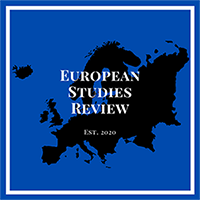By Robin Vandendriessche
The Joint Comprehensive Plan of Action (JCPOA) or the Iran nuclear agreement is a landmark accord reached in 2015 between Iran, the five permanent members of the United Nations Security Council and Germany. The deal, mediated by the European Union, placed significant restrictions on Iran’s nuclear program in return for sanctions relief. In May 2018, U.S. President Trump withdrew from the agreement by reinstating harsh sanctions on Iran. As a consequence, the Islamic Republic started violating limits on uranium enrichment, despite ineffective attempts of the remaining parties to keep the agreement alive. Since April 2021, the Biden administration has joined negotiations in Vienna aimed at reviving the JCPOA. Despite the changes in American foreign policy, from Donald Trump’s to Joe Biden’s, the EU keeps playing a crucial role: it aims at keeping alive the JCPOA, while not neglecting the protection of human rights.
As one hardliner disappears in Washington, another arises in Teheran. On the 18th of June 2021, Ebrahim Raisi, a hardline judge who is under U.S. sanctions for human rights abuses, was elected Iranian President. Contrary to his relatively moderate predecessor Hassan Rouhani, President-elect Raisi sees “Western sanctions as an opportunity” and “stresses the need for economic independence and resilience”, thereby casting a shadow over the future of the JCPOA. But this election might not necessarily be a bad development. The ascension of such a government in Iran may give the negotiations an additional impulse, as the Biden administration prefers to conclude a deal with a more moderate Iranian government. This idea was also shared by EU High Representative Josep Borrell and Iranian Foreign Minister Javad Zarif.
The desire of Supreme Leader Ayatollah Ali Khamenei to lift the crushing sanctions, preventing Iran from exporting its increasingly expensive oil, should also not be underestimated. All this adds to the theory that not only the elections, but also the revival of the nuclear talks have been influenced by the Supreme Leader in order to let the incumbent moderate government take the blame for bowing to the West. In that way, the future hardline government headed by his protégé and potential successor President Raisi could take credit for the huge economic boost following sanctions relief. This would severely discredit the moderates in Iran and further legitimize the regime in Teheran, something the presidential election of 2021 failed to do because of low turnout.
The nuclear deal with Iran is often hailed as one of the few diplomatic successes of EU foreign policy. In a certain way it is. Not only due to the negotiations, but also because of the discrete but existent EU role as the coordinator of the Joint Commission which oversees the implementation of the JCPOA. Since President Trump’s withdrawal, several European member states have been trying to uphold the nuclear deal. One of these attempts was the creation of a mechanism called INSTEX, which bypasses U.S. sanctions for European companies doing business with Iran. It clearly showed the EU’s commitment to the deal, but the mechanism has so far had little impact.
As Iranians and Americans refuse to negotiate directly, Europe is again playing a role as a go-between. Despite the U.S. returning to the negotiating table, the EU decided to extend its existing sanctions on Iran because of human rights abuses. An interesting timing and a clear signal that the EU does not necessarily want any kind of deal over a no deal. Especially when the extension relates to events that took place in 2019. In response, Iran suspended cooperation with the EU in several key areas such as human rights, terrorism and refugee protection. However, it did not suspend or slow down the JCPOA talks. An indication that this harder stance could provide the block with additional leverage in the negotiations.
The election of Ebrahim Raisi may be an impetus to complete the negotiations in the next months to come. Be it due to the strong U.S. desire to avoid having to talk with a hardline government or the Supreme Leader’s plan to blame the moderates and boost support for his protégé Raisi. At the same time, the EU seems willing to fulfill its mediating role again. As indicated by the extension of its current sanctions on Iran, the EU stands up for its values and at the same time shows that its policy objectives are not necessarily always in line with those of the U.S. This should further increase the block’s leverage in the negotiations.

